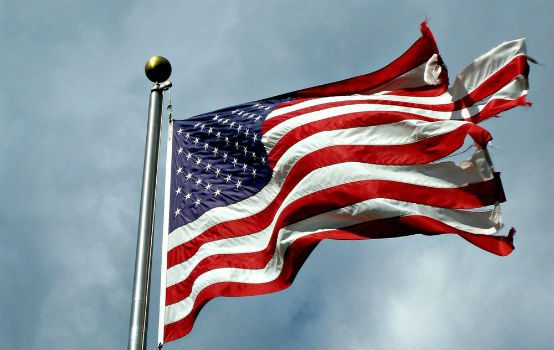Failing the Pandemic Test

Walter Russell Mead bewails those that see the poor U.S. response to the pandemic as being indicative of broader national failure:
It is, however, much too soon to say that America is failing a historic test. What is it being graded against?
It may be true that it is too soon to declare U.S. leadership “dead,” but the U.S. is objectively failing the test presented by the pandemic at present. What is it being graded against? How about the responses of other democratic and allied nations? How about previous U.S. responses to serious outbreaks? On both counts, the U.S. is not doing well. The testing debacle is well-documented, and it is also our government’s most distinctive failing. Many other governments failed to take the threat seriously at the beginning and they have paid for it, and several have tried to cover up and lie about the extent of the outbreak. The U.S. stands apart in lagging behind everyone else in just figuring out where the outbreak is. No other industrialized Western country has performed as poorly or with such disastrous consequences. Now we are being told that if we do everything right from now on we are still probably looking at deaths in the hundreds of thousands. That same figure would have been dismissed as crazed alarmism just a few weeks ago by many of the same people that will now tout it as proof of success. The president has the gall to claim that this would be proof of doing a “good job.”
South Korea appears to have managed the crisis successfully and they have suffered far fewer casualties than the U.S. has so far, and one of the main reasons for their success is that they did what we failed to do: widespread early testing to get a handle on where the virus was spreading. The federal government’s failures in particular have put the country in a terrible position, and even now the federal response remains uneven, erratic, and slow. Forget about what may or may not happen to U.S. “leadership” in the world. The federal government is struggling to lead within our borders. It is a humiliating development, and it should be particularly humbling for supporters of U.S. global hegemony, but then these people are not known for their humility.
One of the reasons why there has been so much self-flagellation, as Mead would have it, is that for at least the last thirty years American leaders have overdosed the public with self-congratulation and fantasies of exceptional excellence that masked serious shortcomings and failings in our society. Especially since the end of the Cold War, many Americans have cultivated a triumphalist attitude that blinded us to the flaws of our system, and that blindness left us vulnerable. The “indispensable nation” that presumes to dictate the affairs of nations on the other side of the planet can’t even take care of its own people in an emergency. The government that imagines that it can remake other countries in our own image can’t provide enough protective equipment for our medical professionals. The U.S. could have invested much more in its own health care, infrastructure, and workers, but for decades we have chosen to fritter it away on imperial fantasies and giveaways to concentrated wealth. Mead’s reference to medieval flagellants is meant as an insult, but a penitent and reflective response is much more appropriate to our current situation than the cheerleading bromides that he has to offer.
Mead writes:
The U.S. typically stumbles out of the starting gate, but once it gets going, the ingenuity, adaptability and dedication of the American people enable it to make up the lost ground.
The U.S. will presumably rally and recover from the debacle we are witnessing, but it doesn’t change the fact that the debacle was avoidable and most of the tens or hundreds of thousands of deaths that follow could have been prevented with a minimally competent response. Mead is engaged in little more than excuse-making for the government’s disastrous failures in this instance. Mead’s comparisons to war efforts is also misleading. A pandemic is not a war, no matter how many pundits and politicians feel obliged to talk about the “front lines” and no matter how many times they try to liken doctors to soldiers. The pandemic has shone a bright, glaring light on the inadequacies of our government’s efforts to protect public health, and it has exposed how woefully unprepared we have been for a threat like this. That is also an indictment of our current foreign policy, which has involved political leaders and policymakers obsessing about relatively small and manageable threats while mostly ignoring the ones that can actually do the greatest harm to this country. The government has spent trillions and sacrificed thousands of American lives in futile wars to ward off minor or non-existent threats, but it can’t be bothered to invest a fraction of that in preparedness for a pandemic. Our national security priorities have been out of whack for decades, and it has taken a disaster of this magnitude to show us just how big of a mistake we have been making.